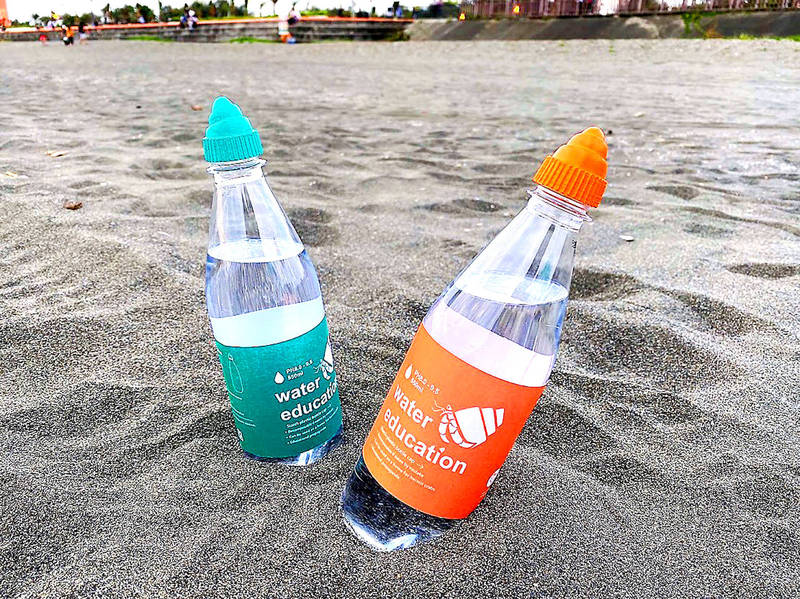《TAIPEI TIMES》 Taiwan teams take gold at world invention contest

Bottles with biodegradable caps invented by teachers and students at National Kaohsiung University of Science and Technology are pictured in an undated photograph. Photo courtesy of the Chinese Innovation and Invention Society
By Chen Chia-i and Liu Tzu-hsuan / Staff reporter, with staff writer
A Taiwanese-designed biodegradable bottle cap that hermit crabs can use as their homes won gold at this year’s World Innovation and Invention Competition in South Korea, as Taiwan ranked first overall, according to the results, which were announced yesterday.
The competition attracted 243 entries from 12 countries, including Taiwan, which submitted 51 inventions, as well as Canada, Indonesia, Malaysia, the Philippines, South Korea, Thailand and Turkey.
Chen Chien-chih (陳建志), a lecturer at National Kaohsiung University of Science and Technology’s Center for Innovation and Entrepreneurship Education, led Tseng Yung-ting (曾詠婷), Lee Pin-an (李品諳), Wang Tzu-yuan (王子轅) and Ke Yung-cheng (柯永誠), a team of students from different backgrounds, in creating the biodegradable cap.
Made of plastarch material — a biodegradable thermoplastic resin that is derived from corn starch — the cap can serve as a home for hermit crabs before it decomposes.
Many hermit crabs are forced to use bottle caps as homes, as people remove the seashells the crustaceans typically use from beaches, Chen said, adding that they can die without suitable shells to live in.
The team designed a waterproof layer in the cap made with edible wax, which would not harm sea birds if ingested by accident.
Chen said he hopes the caps raise awareness about conservation.
The team has already obtained a patent for the cap.
Another gold-winning invention was a method for recycling lithium-ion batteries used in electric vehicles, conceived by Da-Yeh University environmental engineering professor Lee Ching-hwa (李清華) and graduate students Huang Yu-jui (黃于睿) and Shih Chen-hsuan (施辰宣).
The team used hydrometallurgical techniques to recycle valuable metals such as lithium, aluminum, cobalt, nickel, manganese and copper from the batteries of scrapped vehicles to promote a circular economy and curb environmental pollution, they said.
They have filed a patent for the project, which has been awarded a grant from the National Science and Technology Council.
Other gold-winning inventions included an interactive picture book created by a team led by Yen Ying-hung (閆嬰紅) at Asia Eastern University of Science and Technology; a smart pressure testing system for table tennis players devised by Tsai Meng-hsiun (蔡孟勳) and his students at National Chung Hsing University; and a fast decanter invented by Liu Wei-wu (劉緯武) and his students at Hungkuo Delin University of Technology.
新聞來源:TAIPEI TIMES


















